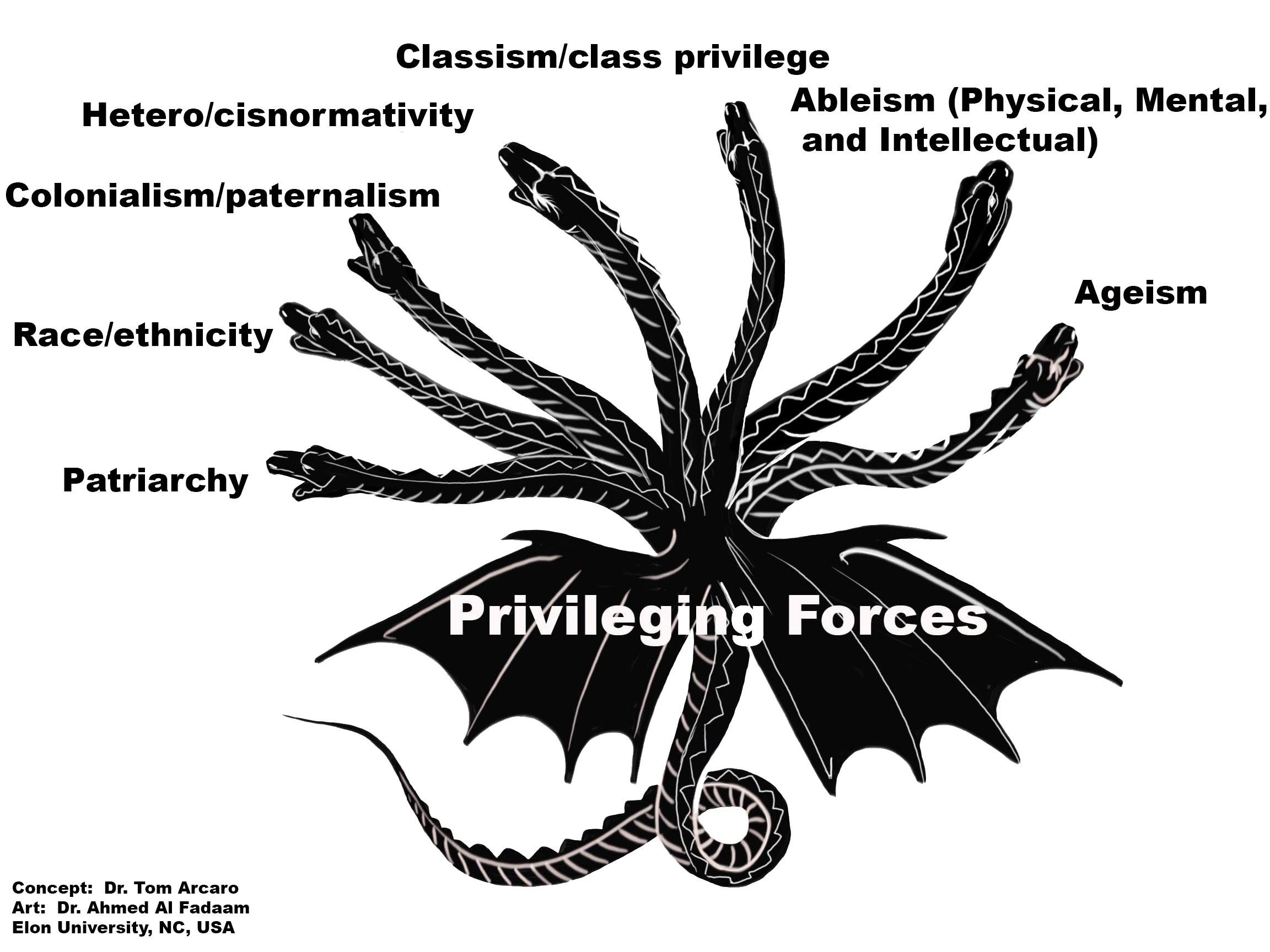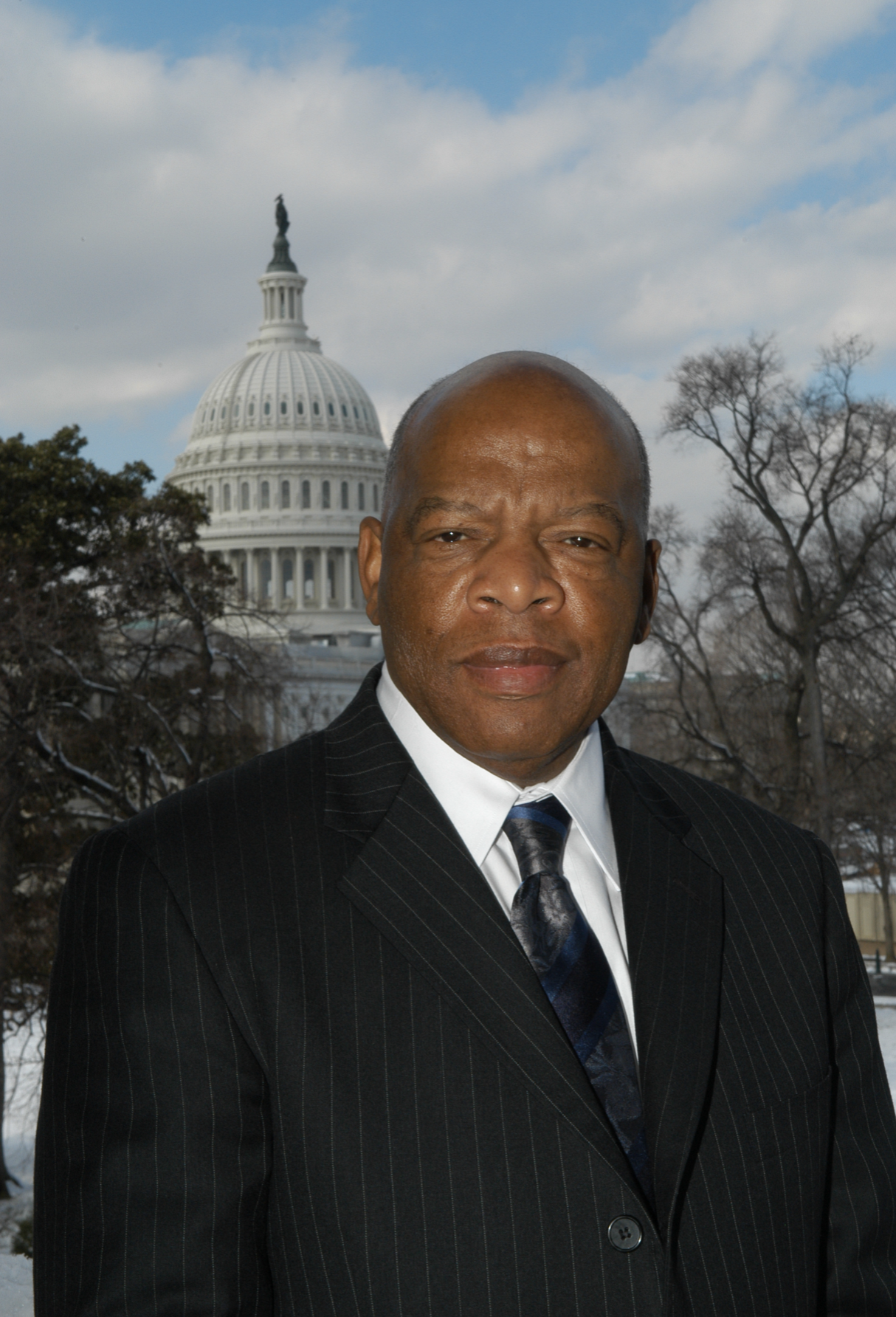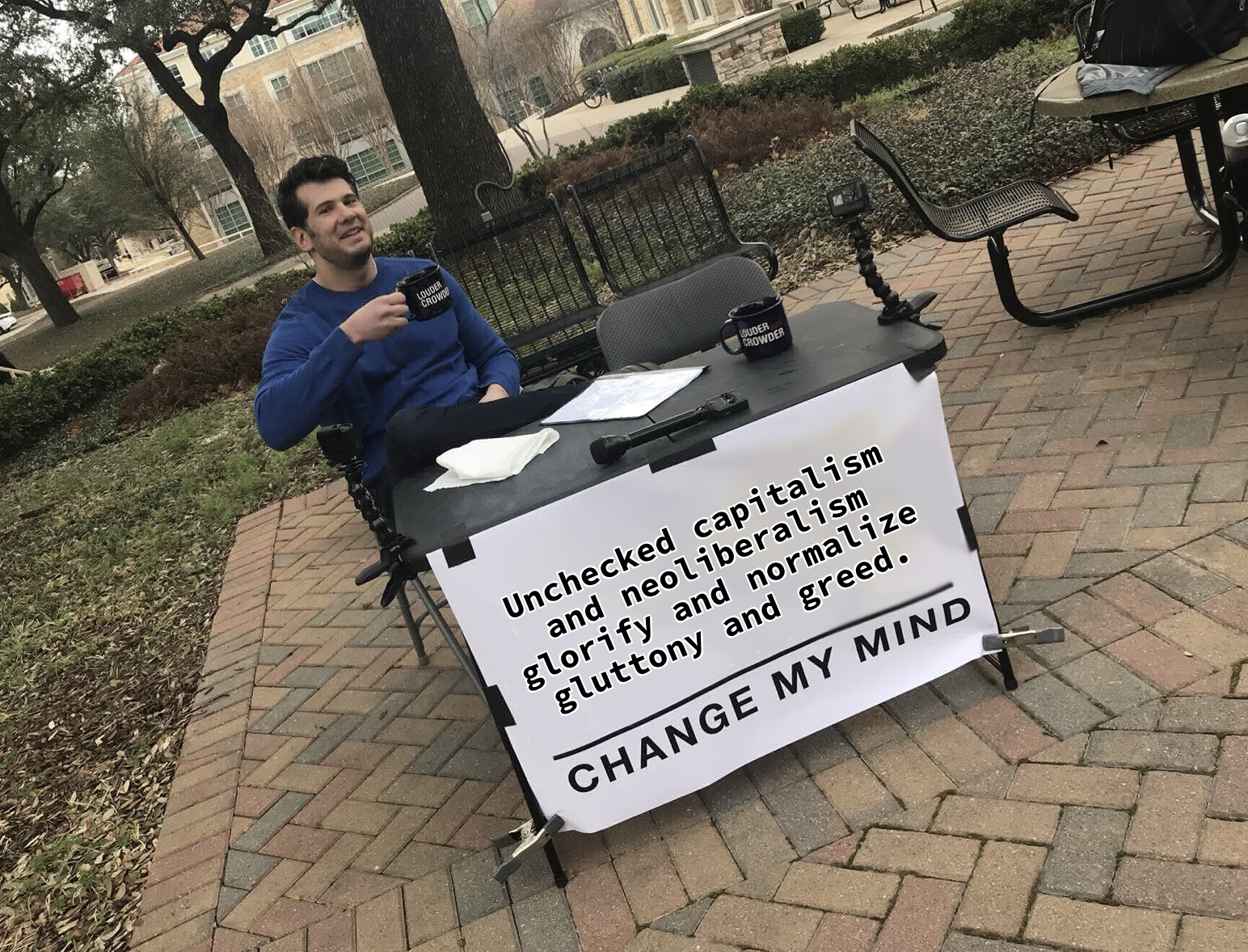A Code of Ethics for Privileged Anti-Othering Persons: the humanitarian imperative and Hydra revisited
“Humanitarianism started off as a powerful discourse; now it is a discourse of power, both at the international and at the community level.” (p. 190)
–Antonio Donini “Humanitarianism, Perceptions, and Power”
In the Eyes of Others (Abu Sada, editor; 2012)
Overview
Below I expand on previous posts related to the humanitarian imperative, the ‘privileging forces’ Hydra, and the quest for global social justice. Studying and engaging with humanitarians all over the world has provided me with a broad base of insights, and I especially thank those from the majority world (aka Global South) who have so patiently offered me their thoughts, feelings, and opinions.
The recent reemergence of a surprisingly inclusive #BlackLivesMatter movement both here in the US and around the world has many talking frankly about systemic racism and toxic white nationalism, and these conversations have generated action. One perhaps not insignificant example of change is the fact that NASCAR, the auto racing organization most popular in the US Southeast has recently banned confederate flags at sanctioned events. These flags have long been a racist symbol and commonly found in abundance at NASCAR races. This change was initiated by one Black driver and then embraced by the policy makers in NASCAR. A second and related example is that Mississippi appears to be on the verge of changing its long divisive flag, deleting the confederate flag embedded in the upper corner.
Within the humanitarian sector there are #BlackLIvesMatter conversations being held. Here is the statement by MSF-USA describing racism as a public health crisis. MSF International’s position is similar, admitting that the organization had ‘failed to tackle institutional racism’, but noting that, “We get a lot of ‘all lives matter’ reaction from colleagues from different parts of the world. … Context is everything.” The deep intersectionality between racism and colonialism embedded within the humanitarian sector needs very close scrutiny and eventually aggressive action at every level, especially within the UN organizations and ‘big box’ INGO’s like World Vision, OXFAM and others. The seriousness and scale of this self examination and policy change must be even more progressive and soul-searching that was done in reaction to the OXFAM (and others) #MeToo crisis.
The Hydra
Last October [2019] I attended the ALNAP conference in Berlin, a mixed gathering of humanitarian practitioners and academics like myself who have studied and commented on the humanitarian ecosystem. There I used the metaphor of the mythical Hydra, a multi-headed monster, to talk about how all of the privileging forces that serve to oppress those marginalized all over the globe, almost always the object of humanitarian actions. The underlying fuel to keep the Hydra alive and active is the toxic and pervasive process of othering which inevitably leads quickly from differentiation (A ≠ B) to stratification (A ≠ B therefore A > B) and using any power asymmetry to justify the ‘isms’.
almost always the object of humanitarian actions. The underlying fuel to keep the Hydra alive and active is the toxic and pervasive process of othering which inevitably leads quickly from differentiation (A ≠ B) to stratification (A ≠ B therefore A > B) and using any power asymmetry to justify the ‘isms’.
Many are now learning both old and new lessons about how deeply racism is baked into the US (and global) culture, and most are seeking ways to directly and productively join the movement toward true racial justice. JLove Calderon and Tim Wise offer this statement in an article titled, “Code of Ethics for White Anti-Racists”
“We are persons classified as white in this society. As aspiring anti-racist allies/collaborators, we seek to work with people of color (and follow their leadership) to create real multiracial democracy. We do not fight racism on behalf of people of color, or as an act of charity. We oppose white supremacy because it is an unjust system, and we believe in the moral obligation to resist injustice.”
This statement, all of it, spoke to me, and I immediately related it to the lessons I have been learning while listening to humanitarians from the majority world. Without using the phrase, they critique the ‘white savior complex’ and voice support for a humanitarian perspective. Read here what some of the respondents said on our survey of humanitarians from the majority world and for further observations about the ‘white savior complex.’
Over 30 years ago Kimberle Crenshaw presented us with the conceptual tool of intersectionality. In this 2017 interview she reflects,
“Intersectionality is a lens through which you can see where power comes and collides, where it interlocks and intersects.”
Humanitarian principles and intersectionality are a critical topic as efforts to make structural, permanent change regarding all privileging forces multiply and matures.
So, with deep gratitude to Calderon and Wise, I offer here a “Code of Ethics for Privileged Anti-Othering Persons”, addressing all seven heads off the Hydra.
We are persons classified as privileged in our global society. As aspiring anti-patriarcal, anti-racist, anti-colonial, anti-hetero/cisnormativity, anti-classist, anti-ablist, and anti-ageist allies/collaborators, we seek to work with people differently privileged (and to follow their leadership) in order to create a more just world where all humans have pathways to dignity. We do not fight these privileging forces on behalf of those marginalized, or as an act of charity. We oppose privileging forces because they create unjust systems, and we believe in the moral obligation to resist injustice.
The fact that these privileging forces are woven deeply into the fabric of all modern global cultures and that they ‘interlock and intersect’ with each other makes confronting them difficult. Like a cancer, these privileging forces infect all institutions of the social system, none are sparred. Religion. Education. Sport and leisure. The economy. Family. Government. Military. Media. Entertainment. All are infected, and all, again, ‘interlock and intersect’ to synergistically and effectively maintain structures of marginalization and oppression. All must be seen as mutually interdependent. In addition, the economic determinists will point out that an amoral -and hence, I argue, immoral global capitalism works synergistically with the heads and the othering body of the Hydra.
Embracing a “Code of Ethics for Privileged Anti-Othering Persons” means understanding that one simultaneously may be privileged and marginalized. For example a queer Black male from the minority world, aka Global North, enjoys male and Global North privilege while enduing heternormativity and racism. Privilege always depends upon the social context currently inhabited and can change even moment to moment.
Humanitarian imperative and bending the arc
For me, the humanitarian imperative begins with the assumption that all human lives have equal value, and every human deserves a life marked by dignity and access to basic human rights. Those who commit to humanitarian values must aggressively fight all of the systemic ‘isms’ represented by the heads of the Hydra. Cutting off one head is not only futile but impossible; as per the myth of the Hydra it will only come back as two. Hence the body of the Hydra, fed by toxic othering, must be the focus of our attacks. That means a comprehensive and coordinated effort to address all systemic misuse of power certainly by individuals but even more importantly by institutions wielding power, clearly including the humanitarian sector itself. Ultimately, since human nature -albeit the the darker parts- produced the Hydra, the Hydra must be tamed and transformed, not killed.
In previous posts I have used the language and imagery of defeating the Hydra, not by lopping off each head but rather by fataly attacking the Hydra’s body. Defeating the body, the toxic engine supporting and perpetuating each of the heads, seemed a logical action point. Upon reflection, I must admit that my manner of framing the solution –
killing the Hydra- was perhaps yet another example of toxic masculinity emerging from my imagination. Taming rather than killing reflects perhaps a more feminist -and humane- approach. Indeed, I would have done well reading more by and about bell hooks (and others) who articulated long ago the a feminist model of conflict resolution which advocates the “…deconstruction of unequal power relationships in societal structures.”
Not only is taming the better goal it is, looking more closely, the only way forward that pays attention to the fundamental fact that we cannot ‘change human nature.’ The evolutionary psychologist will tell us that how our brain works is, in large part, based on our evolutionary history and that our basic emotions are deeply wired into our brains, specifically located in the limbic system. We can’t eliminate fear, a basic emotion, but we can, as President Kennedy argued, work toward a gradual evolution of human institutions.
My previous thinking was wrong, misleading, and borderline mysognistic. Taming, not killing the Hydra must be our goal.
Another shortcoming in my previous thoughts on the Hydra was too little attention to what it means to ‘deconstruct unequal power relationships.’ Bending the moral arc toward justice means identifying and then reversing all instances where hatred an d fear have been encoded into norms, policies, and laws on all levels, locally, nationally, and internationally. This includes, of course, all of the organizations and bureaucracies in which we learn and work. This work demand a close reading of [all] local, national and global history sometimes made difficult by racist resistance. The 1619 Project is a good model for a deeper examination of how racism has permeated US history.
d fear have been encoded into norms, policies, and laws on all levels, locally, nationally, and internationally. This includes, of course, all of the organizations and bureaucracies in which we learn and work. This work demand a close reading of [all] local, national and global history sometimes made difficult by racist resistance. The 1619 Project is a good model for a deeper examination of how racism has permeated US history.
Though our illustration above implies otherwise, some heads of the Hydra might well be seen as far more important than others. To wit, racism impacts most of the people on this planet, and thus must be confronted with full measure of effort. That said, the fight against systemic racism need be anchored in rooting out power misuse allowing for all forms of toxic othering.
How can this be accomplished by an underfunded humanitarian industry designed mostly to respond to natural and human made crises? There is no quick or easy answer to that, but I do suspect that Donini (quoted above) is right: humanitarianism is a discourse of power. One very important step in understanding and then changing toxic power arrangements is to listen to and work with those who have been marginalized by misuse of power. Those who are multiply marginalized (especially women of color) have much to teach, and it is our job to listen and to follow their lead, always demanding an inclusive scope of both understanding and action.
One such voice is Namati. Established seven years ago, Namati.org is a global legal empowerment movement. From their web site: “Namati means ‘bending the arc.’ With leadership from those most impacted, we will bend the arc of history together.” The current #BlackLIvesMatter movement is a necessary and vital part of bending the ‘moral arc of the universe toward justice.’1
This phrase has a long history, with President Barak Obama borrowing it from Dr. Martin Luther King, Jr. who adapted it from abolitionist minister Theodore Parker. Parker said,
“I do not pretend to understand the moral universe. The arc is a long one. My eye reaches but little ways. I cannot calculate the curve and complete the figure by experience of sight. I can divine it by conscience. And from what I see I am sure it bends toward justice.”
Bending this arc is a long process, and one that takes constant, coordinated effort. Gains won must be aggressively preserved or they can be lost very quickly. The Namati organization has it right: legal changes are key in bending the arc. But it must be

stressed that structures within all other social institutions must be altered as well. Humanitarians have great potential and responsibility as ‘arc benders’ and, as stressed one more time, demands accepting leadership ‘from those most impacted.’
‘arc benders’ and, as stressed one more time, demands accepting leadership ‘from those most impacted.’
Understanding interconnected and baked in privileging forces and then responding to the humanitarian imperative is hard, complicated, and a long term commitment. But is a commitment mandated by our devotion to the cause of justice for all. This mandate includes, well, inclusion, and we must act on the fact that all of the heads of the Hydra are fueled by othering and hate.
In the words of the late John Lewis, champion of civil rights, we must “Continue to build union between movements stretching across the globe because we must put away our willingness to profit from the exploitation of others.” The title of his posthumously published editorial is “Together, You Can Redeem the Soul of your Nation” but I feel he would approve of this re-statement: “Together, we can redeem the soul of humanity” so that it adds a call to action for those subscribing to the “Code of Ethics for Privileged Anti-Othering Persons” discussed above. To “redeem the soul of humanity” and to bend the moral arc of the universe toward justice means confronting, challenging, and changing some near-sacred social structures. Focused social change is never quick nor easy, and we must be willing to make “good trouble” to make this happen.
A broader perspective?
Are we bending the arc? It might not seem so if you look only at the last six months or even 60 years. What if we look at the last 6000 years? According to Steven Pinker there has been steady progress toward a more ‘civilized’ world. He argues in his 2011 book The Better Angels of Our Nature: Why Violence Has Declined that as a species we have become progressively less violent and cruel to others, that world cultures have slowly become more intolerant of violence in the family, and within and between peoples.
Justification for othering comes from many sources through history, and in one section focuses in on the Abrahamic religions. Pinker writes,
“The scriptures present a God who delights in genocide, rape, slavery, and the execution of nonconformists, and for millennia those writings were used to rationalize the massacre of infidels, the ownership of women, the beating of children, dominion over animals, and the persecution of heretics and homosexuals. Humanitarian reforms such as the elimination of cruel punishment, the dissemination of empathy-inducing novels, and the abolition of slavery were met with fierce opposition in their time by ecclesiastical authorities and their apologists. The elevation of parochial values to the realm of the sacred is a license to dismiss other people’s interests, and an imperative to reject the possibility of compromise.”
 The humanitarian reforms that Pinker meticulously details over many chapters are actions that bend the moral arc. They have had a cumulatively powerful impact, creating at least a less overtly violent world and a best a more just and moral humanity.
The humanitarian reforms that Pinker meticulously details over many chapters are actions that bend the moral arc. They have had a cumulatively powerful impact, creating at least a less overtly violent world and a best a more just and moral humanity.
Let’s push Pinker a bit. I’ll grant his historical observations, but question whether in this 21st century the pendulum may be swinging back. It is possible that the net actions of humans in the last 20 years have undone much of this ‘positive bending’ of the moral arc? Have greed and gluttony been so thoroughly normalized and glorified in our global culture that even the better angels of our nature cannot purge them?
In 1940 -80 years ago- at the very end of The Great Dictator Charlie Chaplin gives an amazing and passionate speech saying that “greed has poisoned men’s souls” and calling on humanity to reject those motivated by greed and who pedal fascism. According to many social critics unchecked capitalism and neoliberalism in the last 80 years have served only to further ossify toxic values serving only the ultra rich. Though Chaplin’s speech champions the resilience and morality of the human spirit, there is current evidence that fascism may have again been embraced by those in power in many parts of the world. Saudi Arabia under Mohammed bin Salam. Myanmar under Aung San Suu Kyi. Russia under Putin. Brazil under Bolsonaro. And, yes, perhaps, the United States under Donald Trump.
I’ll offer that an antidote to the poison of fascism is to embrace the “Code of Ethics for Privileged Anti-Othering Persons” I presented above. Those of us, like Charlie Chaplin, who believe in the power of humanity have a moral duty to resist injustice in all forms.
Final note
My students have suggested that the Hydra needs another head describing our species’ anthropocentric perspective and the consequent destructive ‘ecocidal’ relationship we have with the environment. We ‘other’ the very natural world that sustains us and this has led us to the brink of a massive climate disaster, which has already exasperated humanitarian crises across the globe, mostly in the majority world. This impact is an example of environmental racism in action, and as such merits our immediate attention. Adding ‘anthropocentrism’ as an additional head to the Hydra may be in order. [See this for an update.]
As always, if you have any comment or feedback please contact me at arcaro@elon.edu.
And yes, I will be watching the movie highlighting the work of humanitarian Paul Farmer “Bending the Arc” when it is released and share my thoughts.
1This section on bending the arc toward justice is an edited version of what I previously posted here.


 Follow
Follow